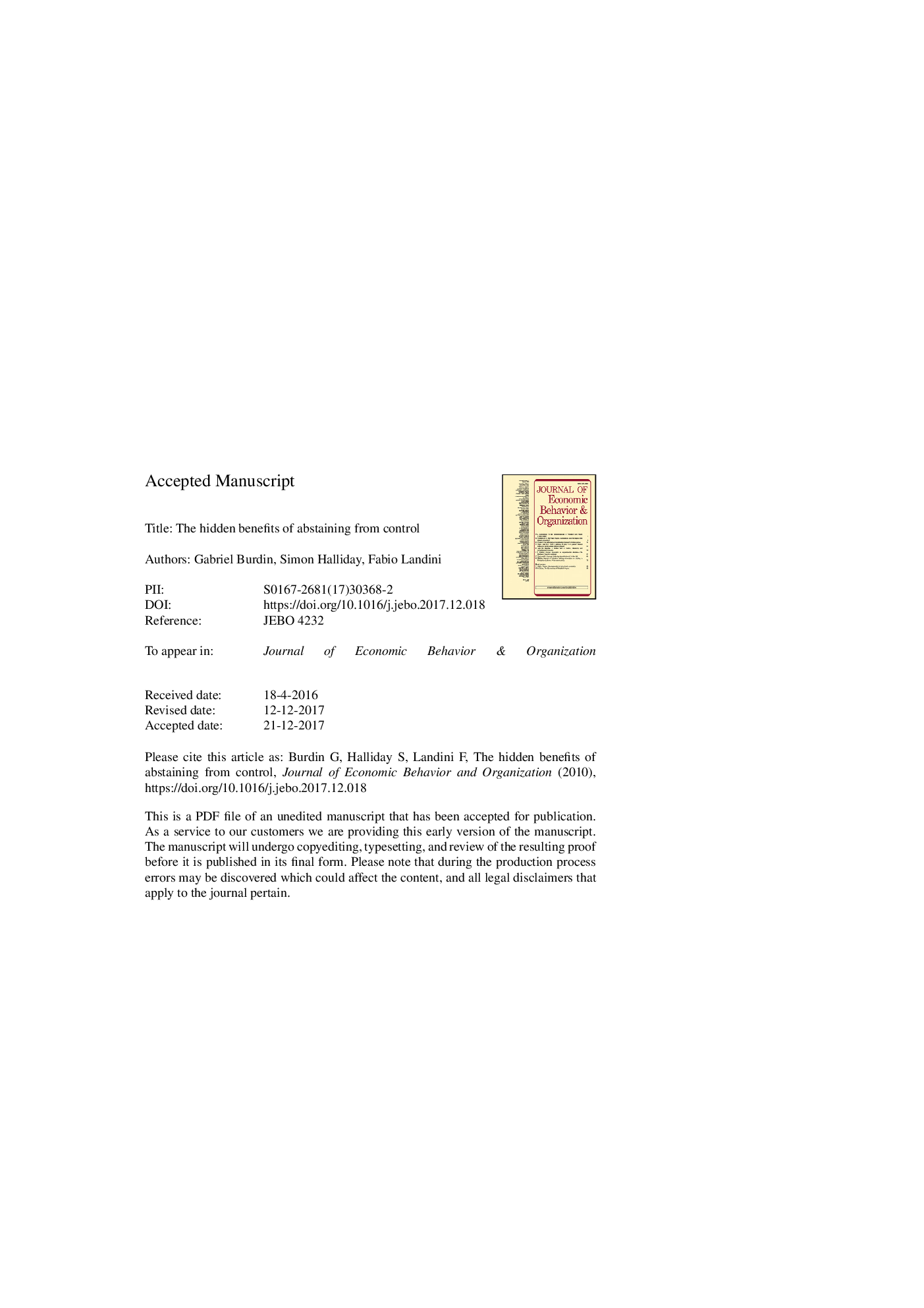| Article ID | Journal | Published Year | Pages | File Type |
|---|---|---|---|---|
| 7242639 | Journal of Economic Behavior & Organization | 2018 | 28 Pages |
Abstract
This paper studies the role of negative reciprocity, positive reciprocity and preferences for autonomy in explaining agents' reactions to control in experimental principal-agent games. While most of the social psychology literature emphasizes the role of autonomy, recent economic research has provided an alternative explanation based on reciprocity. To understand the behavioral mechanisms underlying such reactions, we conduct an experiment in which we compare two treatments: one in which control is exerted directly by the principal; and the other in which it is exerted by a third party enjoying no residual claimancy rights (third-party control). The results indicate that when either the principal or a third party decides to control the average level of effort that is selected by the agents is similar. What changes remarkably are the agents' reactions to the decision of the other participants not to control. When the principal decides not to control, then the agent exerts greater effort relative to the case when the third party decides not to control. Agents seem to reward principals who abstain from control for their trust, rather than punish controlling ones for their distrust.
Related Topics
Social Sciences and Humanities
Economics, Econometrics and Finance
Economics and Econometrics
Authors
Gabriel Burdin, Simon Halliday, Fabio Landini,
